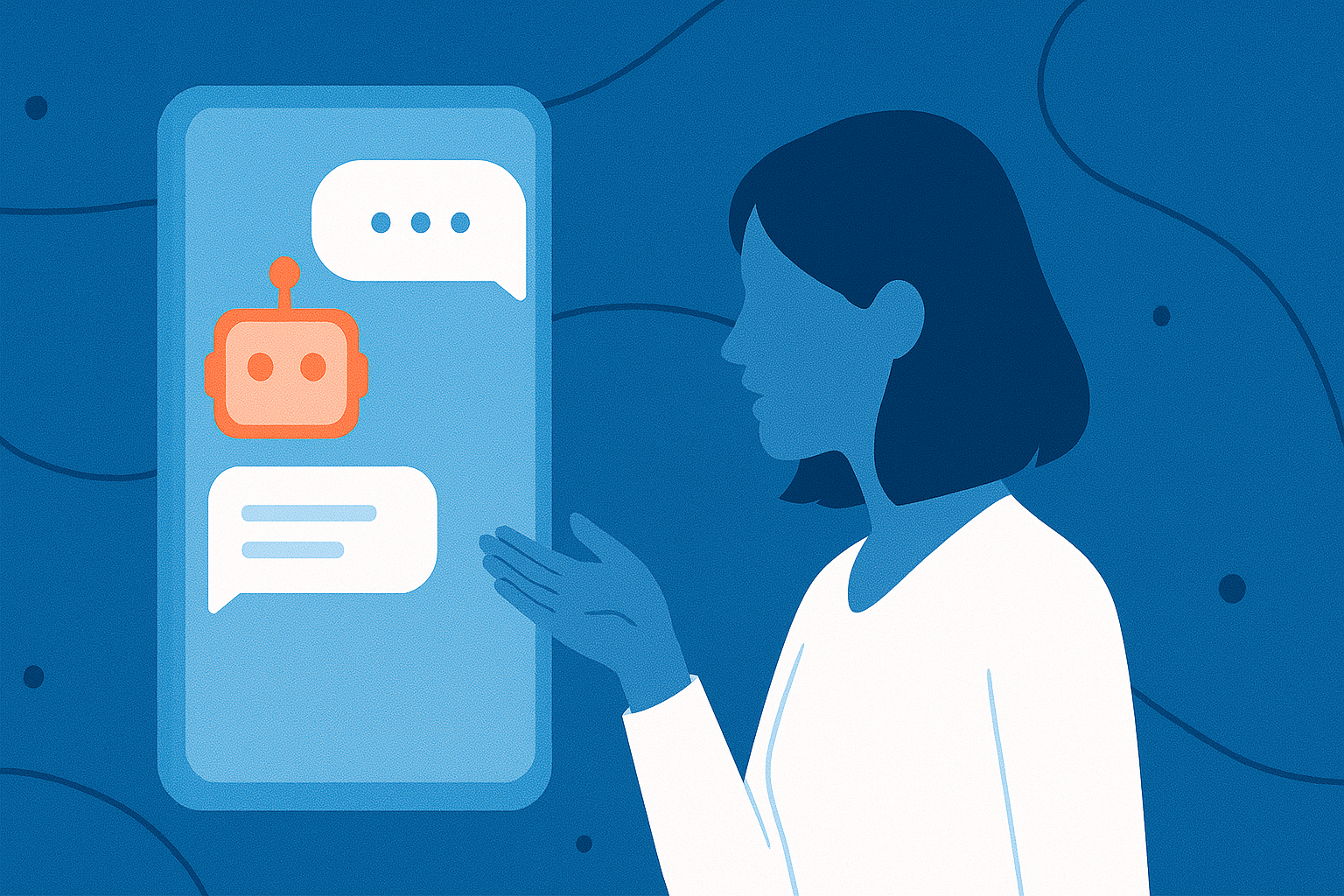
Your Buyers Will Demand Conversational AI (And Here's Why)
Sales is about to change. Soon, your biggest prospects will ask one simple question that separates prepared teams from everyone else: "Are you using AI to help with this call?"
Picture the moment: a Fortune 500 CTO pauses mid-pitch and asks your rep that exact question. The competitors are ready. Your team isn’t.
This isn’t hype. It’s where B2B sales is heading, and your buyers won’t just accept conversational AI - they’ll expect it.
The Coming Shift in Buyer Expectations
Buyers are tired of the same patterns in sales calls:
- Getting long, irrelevant answers when they ask technical questions.
- Watching reps Google in real time while pretending to take notes.
- Hearing scripts read word-for-word, no matter the context.
On average, buyers now complete more than half of their evaluation process - and often come to the table with selected vendors and prepared questions - before they ever hop on a call. A study from DemandGen found that B2B buyers are nearly 70% through their purchase journey before initiating first contact, and 81% already have a preferred vendor in mind. Yet legacy sales platforms continue to celebrate metrics that don’t matter - talk time percentages, email counts, or how many times “ROI” was mentioned - optimizing for noise instead of value.
The Signs Buyers Will Notice (and appreciate)
When conversational AI is in play, the difference will be obvious - and positive. Buyers will recognize it not as artificial, but as more human. Here’s what they’ll see:
Instant Recall
Traditional rep: “I think we might have a case study on that… I’ll send it after the call.”
AI-augmented rep: “That’s the same challenge customer X raised around CRM integration and automation. Want me to explain how we’re addressing it?”
Perfect Memory
Instead of blank stares when a past detail comes up, the rep seamlessly connects today’s conversation with weeks-old discussions. Not because they’ve memorized it, but because AI preserves context.
Better Timing
AI provides subtle cues to balance the talk-to-listen ratio. Calls flow more naturally. Buyers stay engaged.
Why Authenticity Improves With AI
Paradoxically, sales conversations become more authentic when AI reduces cognitive load. Instead of clinging to scripts, reps actually listen, adapt, and connect. Conversation Cards provide guidance without scripting the exchange.
As one buyer put it: “The non-AI reps sound like robots trying to be human. The AI-supported reps sound like humans with perfect recall.”
Why Buyers Will Demand It
Soon, buyers will start asking vendors upfront if they use real-time AI support. It will become a qualifier. From their perspective, why settle for wasted time when they could have:
- Instant answers instead of follow-ups.
- Accurate recall instead of reminders.
- Relevant examples on demand.
- Real-time ROI insights.
A procurement officer will put it bluntly: “If you’re selling digital transformation but still running sales like it’s 1995, I’ll question your whole approach.”
Legacy Tools Will Fall Behind
Tools that only analyze what went wrong after the fact will feel outdated. Optimizing talk tracks and email cadences won’t help when the real game is happening live, in the conversation itself. The future belongs to real-time support, not retrospective analysis.
The Transparency Edge
The best reps will even acknowledge using AI. “Let me pull up the specs,” or “My assistant is surfacing a case study for this exact scenario.” Buyers will appreciate the honesty; and the quality of answers.
The Bottom Line
Buyers will be able to tell when you’re using conversational AI. The sharper answers, the continuity across meetings, the flow of the exchange - it will all stand out.
And they’ll reward it.
Conversational AI won’t be a nice-to-have. It will define which vendors are seen as competent, trustworthy, and worth doing business with. The only question is whether you’ll adopt it before buyers start demanding it.


